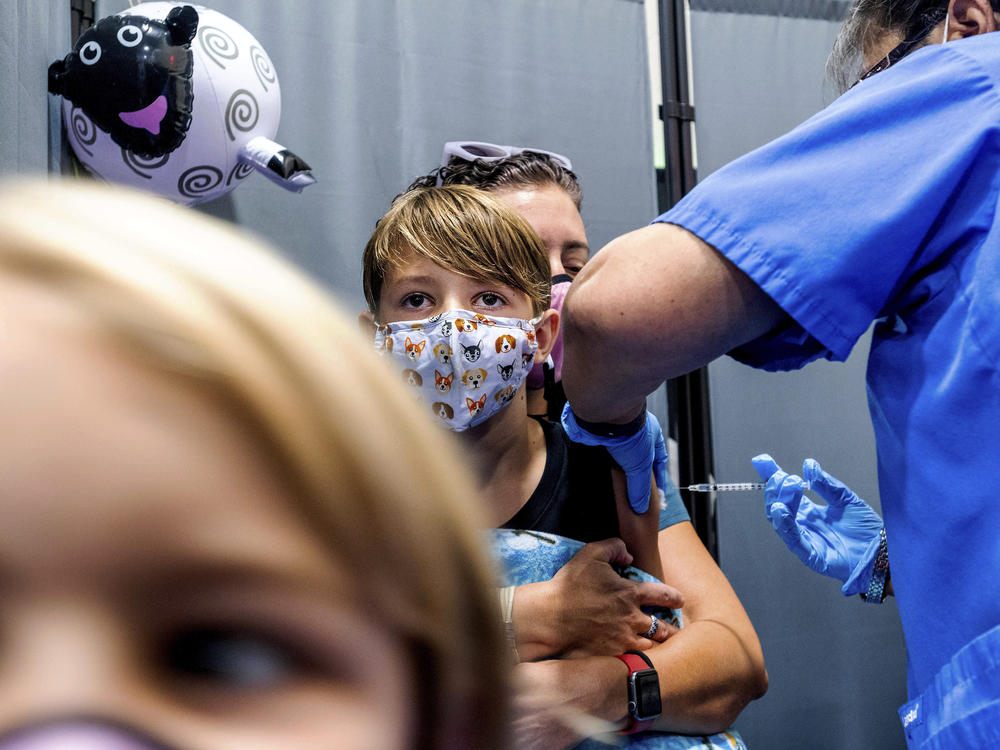Section Branding
Header Content
Pfizer asks FDA to authorize booster shots for kids ages 5 through 11
Primary Content
Children ages 5 through 11 who've received two shots of the Pfizer COVID-19 vaccine may soon be eligible for a booster. That's if the Food and Drug Administration agrees to a request made Tuesday by pharmaceutical companies Pfizer and BioNTech to authorize their booster shot for kids in this age range.
The companies submitted data to the FDA showing that the low-dose booster shot is safe for children ages 5 through 11 and could help protect them against omicron. Currently, boosters are only authorized for people ages 12 and older.
The companies say a third shot for younger kids could help counter waning immunity that has left other age groups more vulnerable, especially against omicron, which is better at getting around the immune system.
Some independent experts agree. But others remain skeptical that another shot is needed yet for younger kids.
"Over time, immunity to the vaccine wanes. And we know that that happens in children as well. So the data right now really support vaccine and boosters in particular to maintain immunity," says Dr. Yvonne Maldonado, an infectious disease researcher at Stanford who advises the American Academy of Pediatrics and also has been helping test the vaccine for Pfizer.
On the other hand, the vaccines are still going a good job protecting everyone, including kids, from getting severely ill, says Dr. Paul Offit who lead the Vaccine Education Center at Children's Hospital of Philadelphia and advises the Food and Drug Administration.
"It may be that over time, those two doses don't protect against serious illness, in which case one could reasonably received a third dose. But for right now, protection against serious illness appears to be holding up," he says.
Without evidence that a third doses offers enhanced protection not just from infection but against serious illness, he says, "I don't see a clear reason to give a third dose now."
It remains unclear how much of a demand there might be, especially given that case rates are overall low in much of the country. There likely will be some parents who will be eager to get their kids boosters — the same parents who rushed out to get their kids their first two shots. But that was a minority of parents. Less than a third of kids ages 5 to 11 have gotten both of the first two shots. And less than a quarter of children ages 12 to 17 have gotten boosters.
The FDA will review the companies' case, and could very well convene a meeting of the agency's outside advisers to help make a decision. Then the Centers for Disease Control and Prevention would need to weigh in.
Copyright 2022 NPR. To see more, visit https://www.npr.org.

